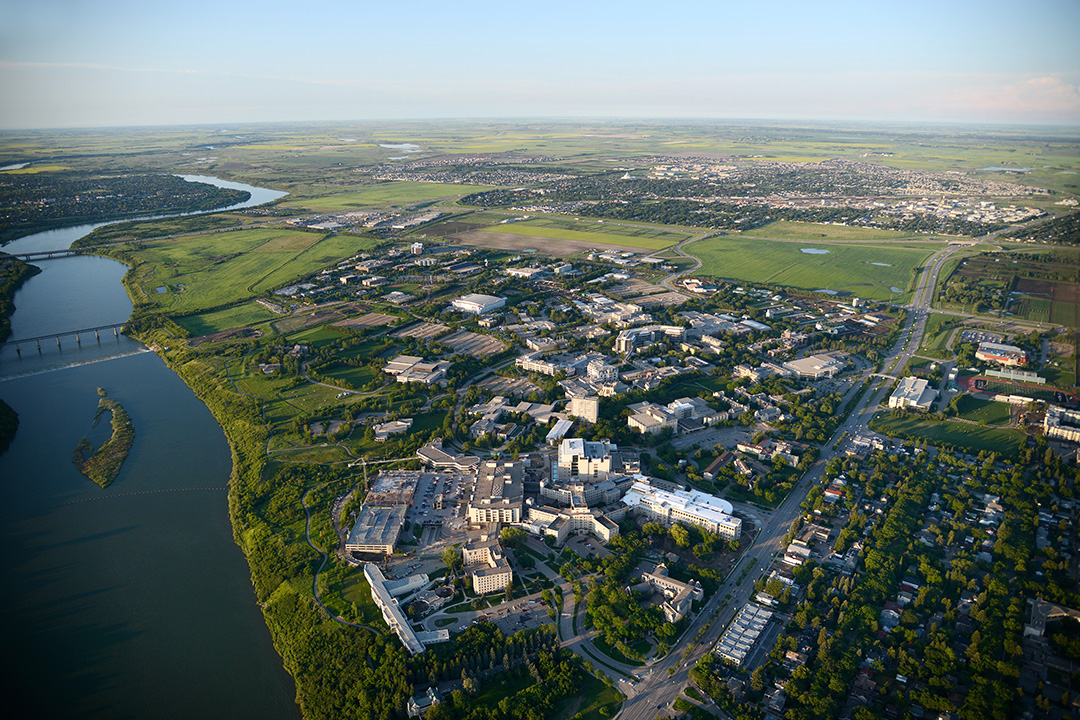
Record number of Royal Society of Canada fellowships for U of S
Four University of Saskatchewan (U of S) researchers have been named fellows of the Royal Society of Canada (RSC)—the largest number ever elected in a single year from U of S to the national fellowship of distinguished men and women from all branches of learning.
As well, the society has named highly regarded U of S veterinary biomedical scientist Maud Ferrari as a member of its College of New Scholars, Artists and Scientists, which celebrates research excellence at an early career stage.
“Election to the Royal Society of Canada is one of the highest honours a scholar can achieve, and we are very proud of the accomplishments of this stellar group of USask researchers,” said Karen Chad, U of S vice-president Research. “Cutting-edge research like theirs in our signature research areas of water security, food security, and synchrotron sciences will help solve some of the most complex challenges facing Canada and the world.”
Fellows in the RSC are peer-elected as among the best in their field, and are often called upon to advise governments, non-governmental organizations and Canadians on matters of public interest. The newly elected fellows will be inducted at a special ceremony on Nov. 16 in Halifax.
USask’s newest Royal Society Fellows and College Member are as follows:
Ingrid Pickering
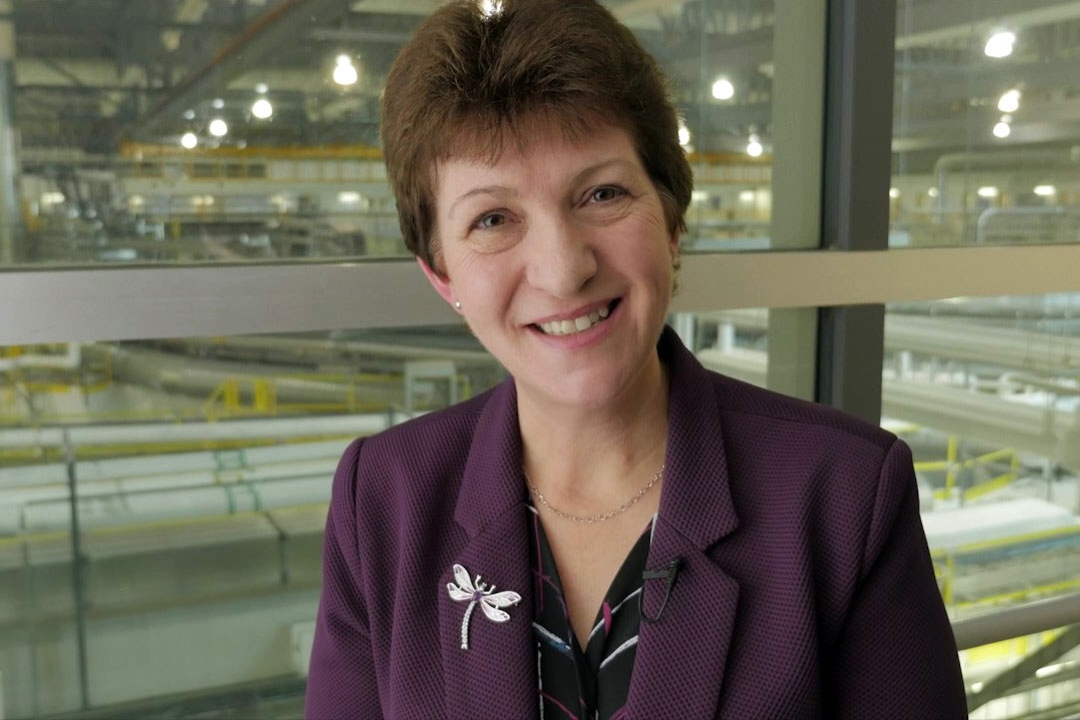
Ingrid Pickering is recognized as one of Canada’s most innovative and influential molecular environmental scientists and synchrotron X-ray researchers. Her pioneering work in synchrotron techniques has led to highly cited findings on the effect of heavy metals on the environment and human health.
Her research on arsenic and selenium, which sometimes cancel each other’s toxicities, has potential for treating more than 100 million people worldwide who are poisoned by arsenic in drinking water, especially in Bangladesh.
Pickering was appointed board chair of the Canada Foundation for Innovation in June 2018—the first woman to hold the post.
Watch Pickering's research profile here.
Howard Wheater
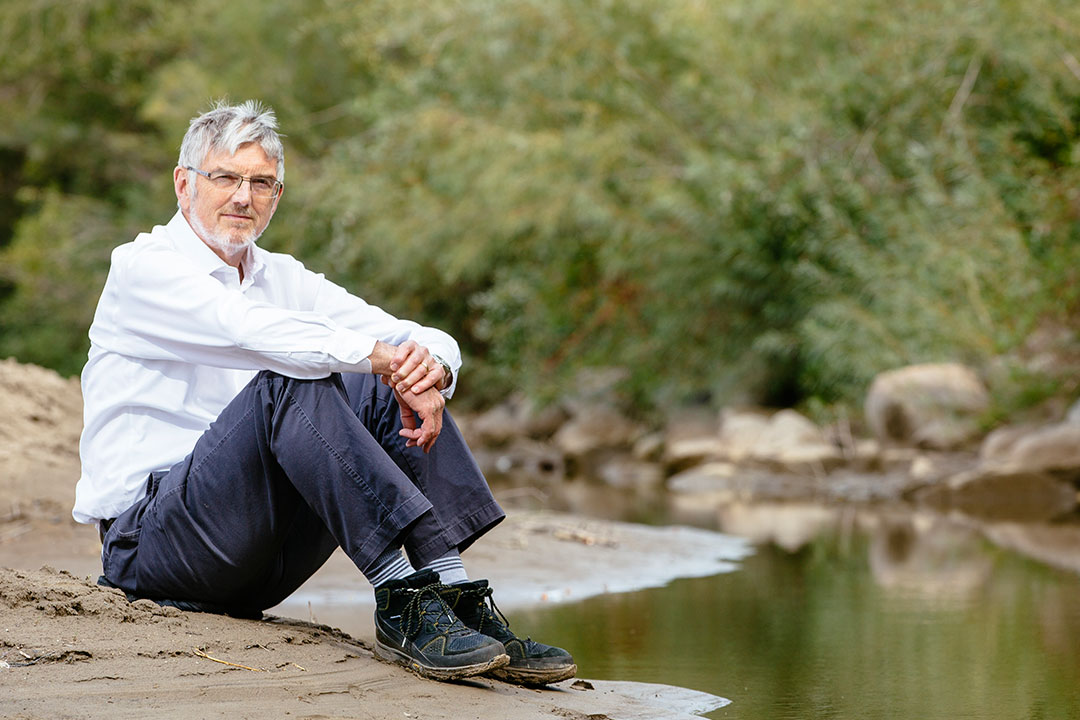
Howard Wheater, founding director of the USask Global Institute for Water Security, has also played a key role in establishing the U of S-led Global Water Futures (GWF), the world’s largest university-led water research program.
Over Wheater’s four-decade career, his research has focused on developing new hydrological science, combining models and experiments to tackle water-related social and environmental challenges. He has advised governments across the globe and international agencies on water sustainability.
He is especially noted for expanding knowledge about the hydrology of arid areas, and was awarded the prestigious Prince Sultan bin Abdulaziz International Prize for water in 2006.
Wheater was awarded the International Hydrology Prize (Dooge Medal) this year by the International Association of Hydrologists, UNESCO, and the World Meteorological Organization for fundamental contributions to the science of hydrology.
Watch Wheater's research profile here.
John Pomeroy
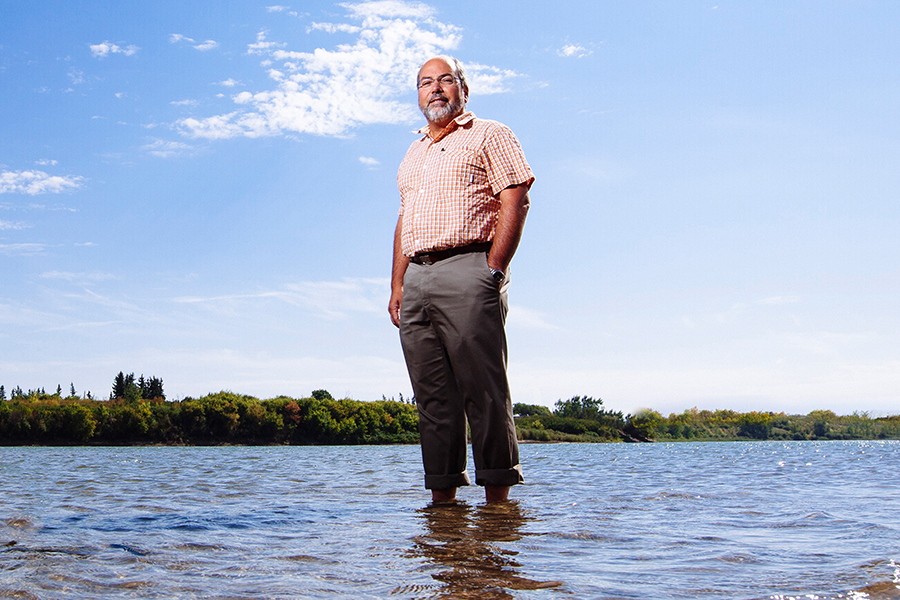
John Pomeroy is the world’s most cited snow hydrologist, and is often called upon by media, governments and international agencies to analyze and comment on water-related issues.
His research has advanced the measurement and understanding of how snowpacks and glaciers form and melt to replenish water supplies. He has made substantial contributions to defining Canadian hydrology and to predicting the water resources of Canada and cold regions around the world.
Pomeroy, who is also director of the U of S Centre for Hydrology, is a fellow of the American Geophysical Union and recipient of the Canadian Geophysical Union’s highest honour, the J. Tuzo Wilson Medal.
He continues to lead several international research networks that have a significant impact on global water policies.
Watch Pomeroy's research profile here.
Doug Chivers
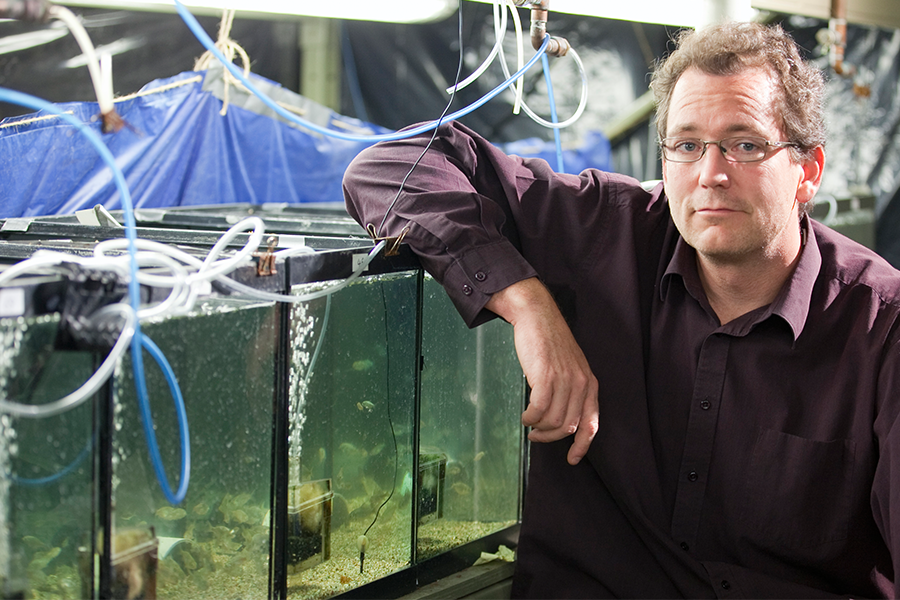
Doug Chivers is a world-leading researcher in animal behaviour, and an expert in predator-prey interactions. He is widely recognized for his innovative research methods and for opening up new fields of inquiry in both basic and applied ecology.
His work has focused on understanding how fish use chemical information to decrease the risk of death from predators. His transformational research on ecological issues is contributing to understanding of pressing environmental issues such as ocean acidification and global warming. His research includes the impact that metal pollution, human-made noises such as boat motors, and coral degradation have on aquatic species.
In 2016 he was elected as a fellow of the Animal Behavior Society.
Watch Chivers' research profile here.
Maud Ferrari

Maud Ferrari has established herself as an international leader in aquatic and behavioural ecology, and is an expert on predator-prey interactions in changing aquatic ecosystems.
In 2017, Ferrari received USask’s highest distinction for new faculty members—the New Researcher Award.
She is an advocate for women in science, science policy, and science outreach, and contributes to academic news sites such as The Conversation Canada to share her research findings with the public. She has published more than 150 peer-reviewed papers, been cited more than 6,000 times, and has presented numerous invited talks around the world.
Watch Ferrari's research profile here.

